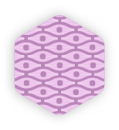Myotonic dystrophy
Neuromuscular
Treatment and therapies
Researchers are looking into possible treatments for DM1. There is currently no cure or specific treatment available.
Managing the disease symptoms can reduce suffering. Symptom management can also improve the quality of life for patients. Therapies include:
- Physiotherapy for muscle weakness and to prevent the development of contractions (joint tightening)
- Ankle supports, leg braces and walking aids (like the stick poles, canes and crutches). They support walking and reduce the risk of falling when muscle weakness gets worse
- Regular physical exercise to maintain muscle function and improve motivation
- Heart medication and interventions (e.g. pacemaker) in case of heart conduct defects
- Behavioural intervention to reduce disease burden.
- Speech therapy for swallowing and speech issues
- Special diet and eating strategies to support swallowing and control gastrointestinal symptoms
- Medication for bowel problems
- Psychiatric therapy for behavioural and psychological issues
- Individualized support for learning disabilities and cognitive delays
- Medications to lessen the myotonia
- Surgical correction of cataracts
- Medication for daytime sleepiness
- Ventilatory support (BiPAP and CPAP ventilators) to help with respiratory issues, especially overnight
- House adaptations, such as wider doors for wheelchair access, downstairs living, no steps into and within the house, grab rails
Link to Myotonic Dystrophy Toolkit page 21
Last modified
31 October 2019